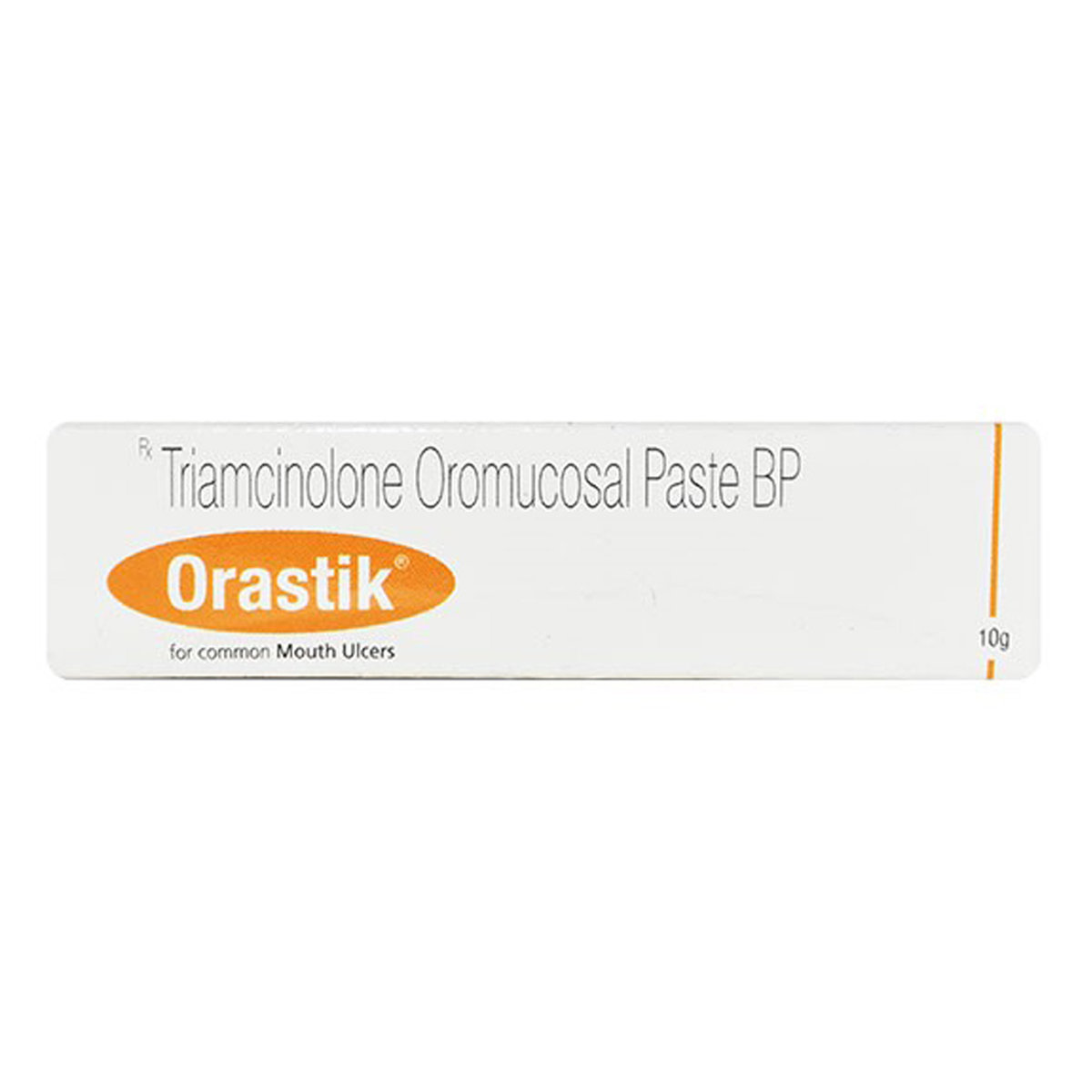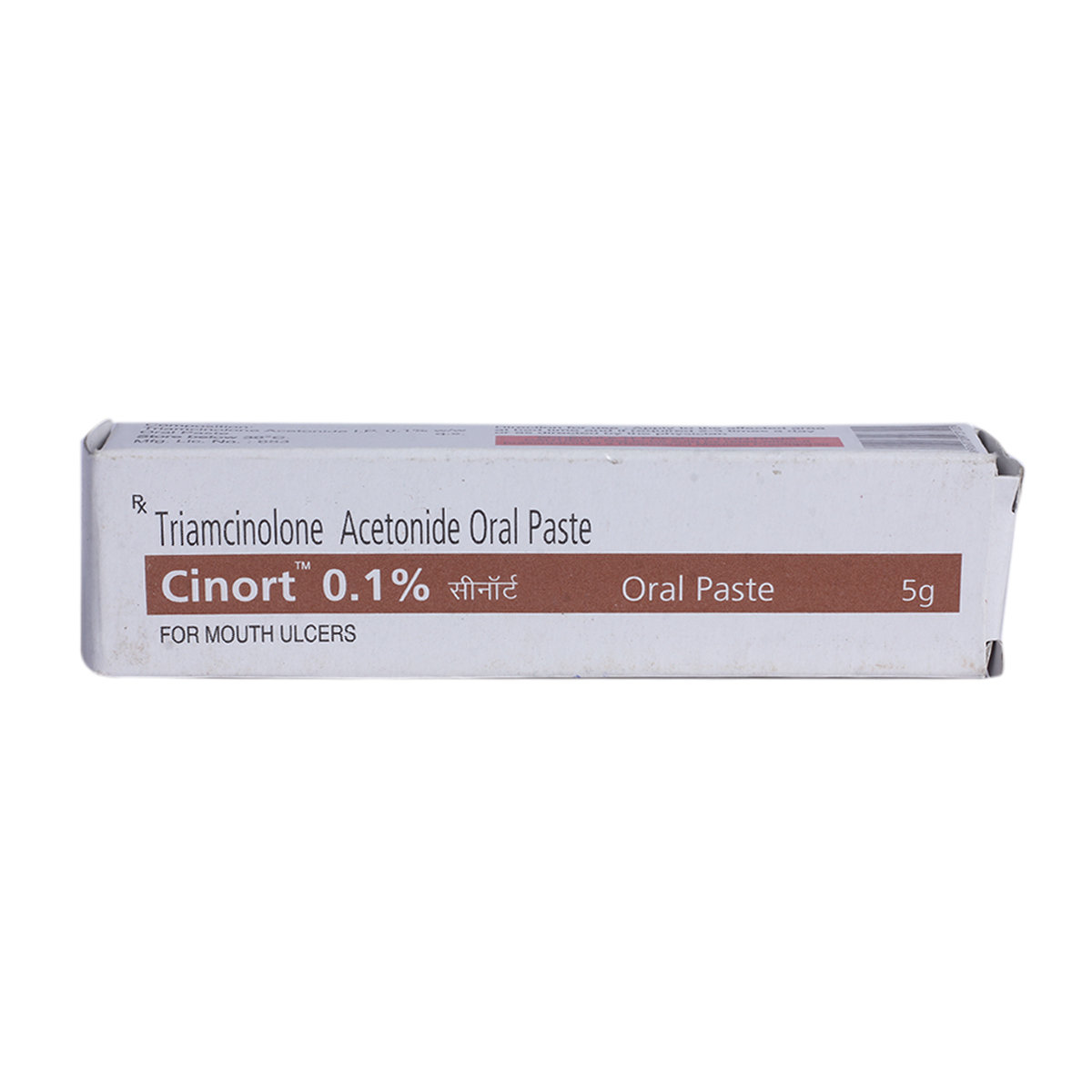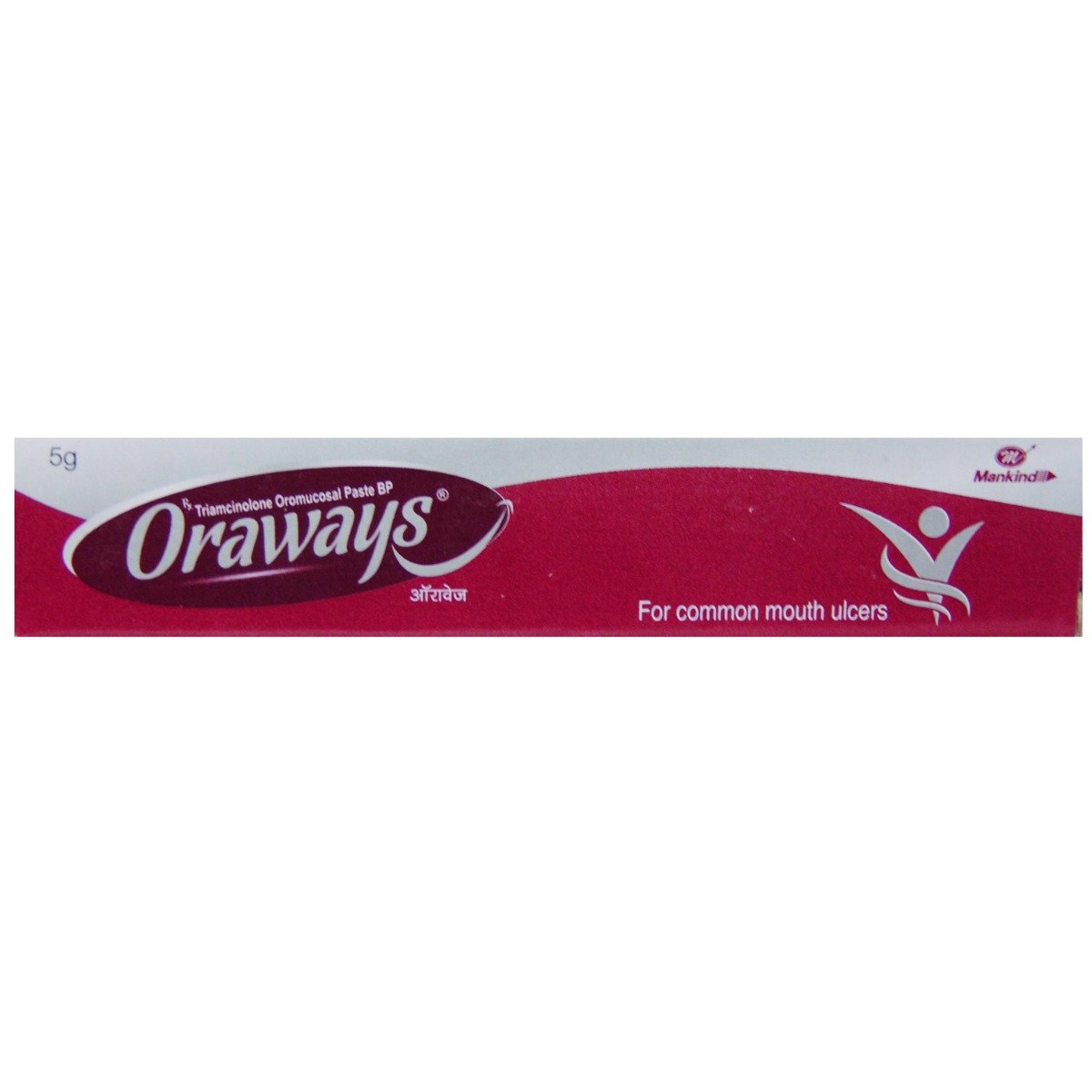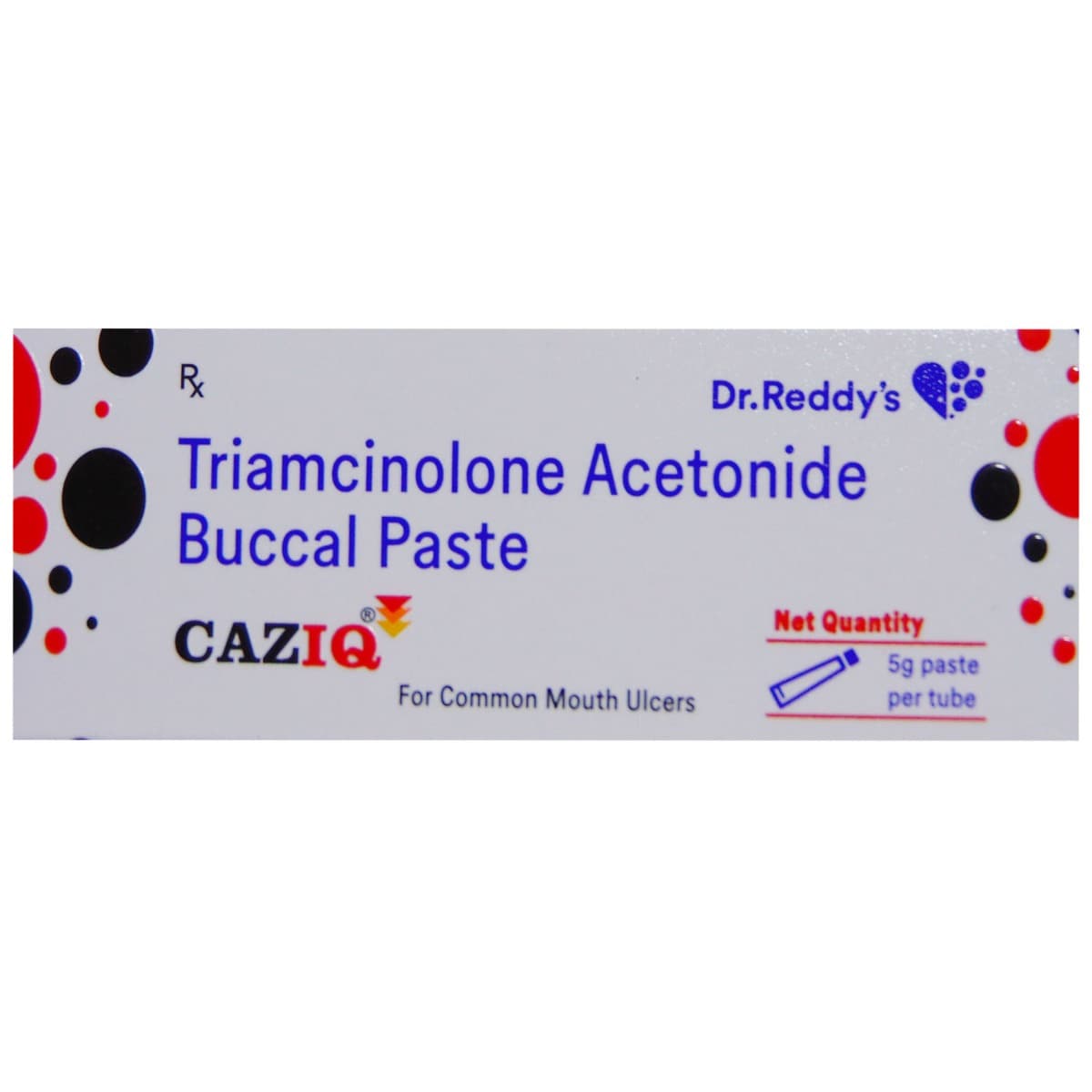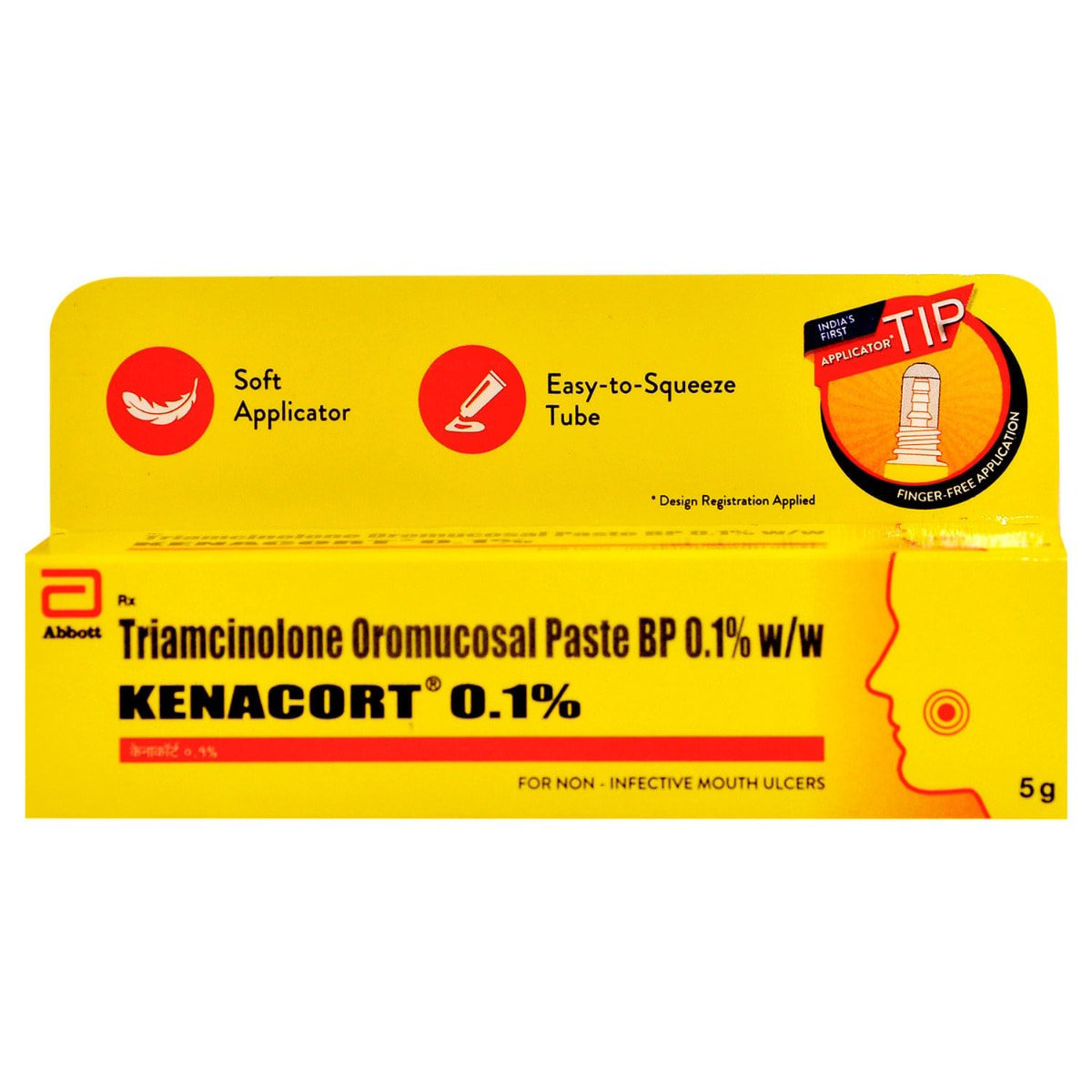Gingicort 0.1% Buccal Paste 10 gm
MRP ₹75
(Inclusive of all Taxes)
₹11.3 Cashback (15%)
Provide Delivery Location
Online payment accepted
 Prescription drug
Prescription drugWhats That
Composition :
Manufacturer/Marketer :
Consume Type :
Expires on or after :
Return Policy :
About Gingicort 0.1% Buccal Paste
Gingicort 0.1% Buccal Paste belongs to a group of medications called ‘corticosteroids’ used in the treatment of various inflammatory and allergic disorders. It is used in the treatment of allergic rhinitis, asthma, rheumatoid arthritis, rheumatic carditis, hormone problems, ulcerative colitis, systemic lupus erythematosus, psoriasis, and other inflammatory conditions. It is also used in the treatment of mouth sores (painful lesions occurring in the lower lip or gums).
Gingicort 0.1% Buccal Paste contains ‘triamcinolone’ which belongs to the class of ‘corticosteroids’. It controls inflammation by acting on the immune system. It decreases the activity of the immune system by blocking white blood cells (WBC) from attacking the body cells. It reduces the release of chemicals that cause inflammation. It causes constriction of blood vessels decreasing the access of cells to the site of injury. This effect helps in reducing swelling, pain and discomfort.
Gingicort 0.1% Buccal Paste should be taken as advised by your doctor. The dose of the medicine will be decided by your doctor based on your health condition. Gingicort 0.1% Buccal Paste may cause certain common side effects such as upset stomach, stomach irritation, vomiting, headache, dizziness, insomnia, restlessness, skin rash, vision problems, and weight gain. Most of these side effects do not require medical attention and gradually resolve over time. However, if the side effects persist or worsen, please consult your doctor.
Gingicort 0.1% Buccal Paste should be avoided if you are allergic to it. Do not take Gingicort 0.1% Buccal Paste more often or for a longer time than your doctor prescribed. Inform your doctor if you have diabetes, other skin infections or have undergone surgery. Inform your doctor if you develop any skin infection while using this medicine. This medicine weakens your immune system, so stay away from people who are sick. If you are pregnant or breastfeeding, talk to your doctor before using this medicine. Check with your doctor before taking vaccinations, as they may not work in people taking this medicine.
Uses of Gingicort 0.1% Buccal Paste
Directions for Use
Key Benefits
Gingicort 0.1% Buccal Paste contains ‘triamcinolone’ which belongs to the class of ‘corticosteroids’. It is effectively used to treat various inflammatory, allergic and autoimmune diseases. It controls inflammation by acting on the immune system. It decreases the activity of the immune system by blocking white blood cells (WBC) from attacking the body cells (target cells). It reduces the release of chemicals that cause inflammation. It causes constriction (narrowing) of blood vessels, decreasing the access of cells to the site of injury. This effect helps in reducing swelling, pain and discomfort.
Storage
Drug Warnings
Do not take Gingicort 0.1% Buccal Paste if you are allergic to it. Inform your doctor about all the prescription and non-prescription medicines you are taking, including dietary or nutritional supplements. Inform your doctor if you have any serious illness or infection. This medicine weakens your immune system making you more prone to infections. So, keep a distance from people who are sick or have infections, especially chickenpox and measles. These conditions are life-threatening in people taking steroid medication. Check with your doctor before taking vaccinations, as they may not work in people taking this medicine. Do not stop taking this medicine abruptly, as it may cause withdrawal symptoms. Do not take Gingicort 0.1% Buccal Paste more often or for a longer time than your doctor prescribed. Inform your doctor if you have diabetes, other skin infections or have undergone surgery. Inform your doctor if you develop any skin infection during treatment with this medicine.
Diet & Lifestyle Advise
- Eat a healthy and balanced diet, and make sure you sleep at least 8 hours a day for a speedy recovery.
- Try to include heart-healthy omega-3 fatty acid-containing food drinks in your daily diet. You can also use low-fat cooking oil like olive oil, soybean oil, canola oil and coconut oil.
- Contact with any person who has chickenpox, measles, or tuberculosis should be avoided as it might cause you the same infection as Gingicort 0.1% Buccal Paste makes your body prone to infections.
- Option for food and drinks high in Omega 3 fatty acid to get relief from pain, swelling and inflammation. Omega 3 fatty acid-enriched foods include flaxseeds, walnut, soybean oil, salmon and tuna fish if you prefer non-veg.
- Prefer whole foods and grains instead of processed ones. Limiting starch may also help decrease inflammation.
- Avoid intake of processed foods, foods high in sugar and fat, as these may cause inflammation.
- Limit salt intake and prefer herbs or spices like garlic, ginger and turmeric, a natural anti-inflammatory.
- Avoid alcohol consumption as it can affect your stomach and intestine and limit the absorption of the important nutrients required by your body.
Side Effects of Gingicort 0.1% Buccal Paste
- Upset stomach
- Stomach irritation
- Vomiting
- Headache
- Dizziness
- Insomnia
- Restlessness
- Depression
- Gum irritation
Habit Forming
Therapeutic Class
All Substitutes & Brand Comparisons
RX
Turbocort Oromucosal Paste 15 gm
Indoco Remedies Ltd
₹138.5
(₹8.12/ 1gm)
20% COSTLIERRX
Tricilone 0.1% Paste 15 gm
Dey's Medical Stores (Mfg) Ltd
₹142
(₹9.47/ 1gm)
40% COSTLIERRX
Orastik Mouth Ulcer Paste 10 gm
Apple Therapeutics Pvt Ltd
₹117
(₹10.53 per unit)
55% COSTLIER
FAQs
Drug-Drug Interactions Checker List
- ITRACONAZOLE
- KETOCONAZOLE
- CLARITHROMYCIN
- TELITHROMYCIN
- RIFAMPICIN
- NEFAZODONE
- CYCLOSPORINE
- PHENYTOIN
- PHENOBARBITAL
- THEOPHYLLINE
- DIGOXIN
Special Advise
If you are undergoing any skin tests, inform your doctor before taking Gingicort 0.1% Buccal Paste, your doctor may suggest stopping the use of Gingicort 0.1% Buccal Paste a couple of days before the tests.
Disease/Condition Glossary
Allergy: It is an immune system response to foreign elements typically not harmful to your body. These foreign elements are known as ‘allergens.’ Some might be allergic to certain foods, drugs, and others might be allergic to pollen or pet dander. Allergic condition varies from person to person.
Asthma: It is a condition in which airways become constricted and swell, resulting in cough, breathing difficulty, and wheezing.
Adrenal insufficiency: It is a condition in which the adrenal gland (which produces steroid hormones) does not produce enough hormones.
Rheumatoid arthritis: It is a long-term (chronic) autoimmune condition (immune system attacks healthy cells) that affects mostly joints causing pain, stiffness, and swelling in the affected part. The major affected joints include hands, wrists, and feet.
Rheumatic carditis: It is the inflammation of heart muscle and tissue in patients with rheumatic fever (a bacterial infection).
Ulcerative colitis: It is the long-term (chronic) inflammation of the large intestine (colon).
Psoriasis: It is an autoimmune (immune system attacks healthy cells) skin disorder in which the skin becomes scaly, swelled up, and itchy.
Systemic lupus erythematosus: It is the most common type of auto-immune disease (a disease in which the body's immune system attacks the body). It causes widespread inflammation and redness in the affected organ.
Mouth sores: These are the painful lesions or swelling that occur inside the lower lips, gums, or tongue. This causes difficulty in eating and drinking.

Have a query?
Alcohol
Safe if prescribed
Avoid consumption of alcohol while on treatment Gingicort 0.1% Buccal Paste as it may increase adverse effects.
Pregnancy
Consult your doctor
It is not known whether Gingicort 0.1% Buccal Paste should be used in pregnant women. Hence, inform your doctor if you are pregnant or planning to become pregnant. Your doctor will recommend this medicine only if the benefits overweigh the potential risks.
Breast Feeding
Consult your doctor
It is not known whether Gingicort 0.1% Buccal Paste passes in breast milk. Hence, inform your doctor if you are a nursing or breastfeeding mother. Your doctor will prescribe this medicine only if the benefits overweigh the potential risks.
Driving
Safe if prescribed
Gingicort 0.1% Buccal Paste may cause dizziness. So, do not drive, operate heavy machinery or refrain from activities that require you to stay alert.
Liver
Consult your doctor
Let your doctor know if you have any history of liver disease before taking Gingicort 0.1% Buccal Paste. Your doctor may adjust the dose of this medicine or prescribe a suitable alternative based on your condition.
Kidney
Consult your doctor
Let your doctor know if you have any history of kidney disease before taking Gingicort 0.1% Buccal Paste. Your doctor may adjust the dose of this medicine or prescribe a suitable alternative based on your condition.
Children
Safe if prescribed
Gingicort 0.1% Buccal Paste should be used in children only if clinically needed and prescribed by the pediatrician. however, long-term or frequent use should be avoided as this medicine may cause growth delay in children.





